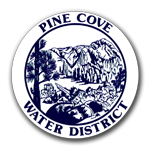Posted by admin on July 25, 2025
- Water is made up of two elements, hydrogen and oxygen. Its chemical formula is H2O
- Each molecule of water is made up of two hydrogen atoms bonded to a single oxygen atom.
- The existence of water is essential for life on Earth.
- Water has three different states: liquid, solid, and gas
- The word water usually refers to water in its liquid state. The solid state of water is known as ice while the gas state of water is known as steam or water vapor.
- Water covers around 70% of the Earth’s surface.
- The three largest oceans on Earth are the Pacific Ocean, the Atlantic Ocean, and the Indian Ocean.
- Found in the Pacific Ocean, the Mariana Trench is the deepest known point in the world’s oceans.
- Ocean tides are caused by the rotation of the Earth and the gravitational pull of the Moon and Sun acting on ocean water.
- Water from a sea or ocean is known as seawater. On average, every kilogram of seawater contains around 35 grams of dissolved salt.
- The freezing point of water lowers as the amount of salt dissolved in at increases. With average levels of salt, seawater freezes at -2 degrees Celsius.
- The longest river in the world is the Nile River. It reaches 6650 kilometers in length (4132 miles)
- The second longest river in the world is the Amazon River. It reaches 6400 kilometers (4000 miles in length).
- The longest river in the USA is the Missouri River. At around2,340 miles in length it is slightly longer than the Mississippi River. The two combine to form the longest river system in North America.
- Water makes a good solvent with many sugar, salts, and acids easily dissolving in it. On the other hand oils and fats don’t mix well with water.
- The water cycle involves water evaporating (turning into a gas), rising to the sky, cooling and condensing into tiny drips of water or ice crystals that we see as clouds, falling back to Earth as rain, snow, or hail before evaporating again and continuing the cycle.
- Water in the form of ice is found at the polar ice caps of the planet Mars, some scientists have also suggested the possibility of liquid water on the red planet.
- Pure water has no smell and no taste, it also has a pH level around 7.
- While most people know that water boils at 100 degrees Celsius, this is at the normal conditions of sea level. The boiling point of water actually changes relative to the barometric pressure. For example, water boils at just 68 degrees Celsius on the top of Mount Everest while water deep in the ocean near geothermal vents can remain in liquid form at temperatures much higher than 100 degrees Celsius.
- Water expands as it cools from 4 degrees Celsius to 0 degrees Celsius. In freezing conditions, water has been known to burst water pipes as it freezes to ice.
- Water can move up narrow tubes against the force of gravity in what is known as capillary action.
- Most people around the world have access to clean drinking water but it is a major problem in poorer areas of the world. Water pollution and low quality water can lead to dangerous bacteria, disease, and viruses such as E coli and Cryptosporidium.
- Drinking water is needed for humans to avoid dehydration, the amount you need each day depends on the temperature, how much activity you are involved in and other factors.
- An important use for water is in agricultural irrigation, this is when water is artificially added to soil in order to assist the growth of crops.
- Water is used frequently by firefighters to extinguish fires. Helicopters sometimes drip large amount of water on wildfires and bushfires to stop fires spreading and limit the damage they can cause.
- The water industry helps deliver water to home in various cities and countries around the world . This can involve services such as purification, sewage treatment, filtering, distillation, and plumbing.
- Electricity can be created from hydropower, a process that uses water to drive water turbines connected to generators. There are many hydroelectric power stations around the world.
- Water also plays a role in cooking. Steaming and boiling food are well known cooking methods. You may have notices this last time you made pasta or noodles.
- Water is also used for fun. Water sports are a very popular recreational activity and include things like swimming, surfing, and waterskiing. Ice and snow is also used in ice skating, ice hockey, skiing, and snowboarding.
